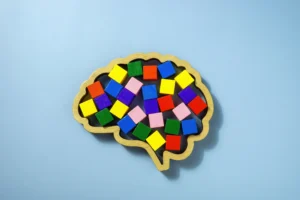
What Is Narcissistic Personality Disorder?
“Well, they’re obviously a narcissist.” This is a phrase we hear more and more in daily life: narcissism, narcissist, and narcissistic personality disorder have entered
Disordered eating is a term used to describe eating behaviors that signify the potential need for an Eating Disorder diagnosis. Note that disordered eating is not a condition in itself but a pattern of behavior that could develop into an Eating Disorder if unresolved.
There is a range of clinically diagnosable eating disorders, such as:
Anorexia Nervosa (AN)
Bulimia Nervosa (BN)
Binge Eating Disorder (BED)
These eating disorders (EDs) are diagnosed with criteria that are specific and narrow. The majority of people who experience disordered eating do not meet the criteria for an eating disorder.
Due to the narrow criteria for an ED diagnosis, those who present with the symptoms of disordered eating but do not have AN, BN, or BED may be diagnosed with Other Specified Feeding or Eating Disorders, or OSFED.
To be diagnosed with OSFED, there are also certain criteria to be met which are also narrow when compared with the possible symptoms of disordered eating.
Still, concerns and atypical behavior around eating habits deserve attention even when there is no official diagnosis to be made. Disordered eating habits can become eating disorders or may lead to other physical and psychological health issues if not checked in their early stages.
The following are some of the most common symptoms of disordered eating:
Anxiety around food types
Meal skipping
Frequent dieting
Unusual weight fluctuation
Strict rituals and routines around eating
Guilt and shame regarding food and eating
Obsession with food (calories, quality)
Preoccupation with weight and body image
Compulsive eating habits
Restricted eating/fasting or purging to counter unhealthy food intake
Some of the above symptoms are not always problematic. It is perfectly normal to adhere to a diet plan or exercise routine, to watch your calorie intake, or not finish a meal if you don’t feel hungry enough to eat it. However, when these symptoms begin to impact one’s quality of life they become a problem and indicate the need for positive change and potentially a professional intervention.
Disordered eating, though not as severe as a clinically diagnosed eating disorder, still has a negative impact on our mental health. Many people who present disordered eating patterns are not always fully aware of the harmful effects of their behavior on their health. Some of the consequences of disordered eating, especially when there is lack of education around the consequences, include:
Higher risk of obesity
Higher risk of eating disorders
Bone density loss
Gastrointestinal problems
Electrolyte and fluid imbalance
Low heart rate
Low blood pressure
Anxiety
Depression
Social isolation
Disordered eating can be difficult to identify, especially given the fact that the person suffering may not display the classic symptoms of an ED.
Furthermore, substance use disorders often co-occur with eating disorders, which makes treatment more complex
Though disordered eating may not meet the criteria for an ED, there are still physical and psychological implications for the behavior. In order to assess whether or not a person is suffering from disordered eating, some of the following areas should be considered:
Ability to concentrate and focus – thoughts about food and eating may impact professional or academic performance
Social life – a person struggling might withdraw from social situations centered on food, such as eating with others at a restaurant or at the dinner table
Anxiety and discomfort – food and eating might cause feelings of anxiety or discomfort
Coping skills – food may be avoided or consumed in excess as a means of dealing with stress or other difficult feelings
Disordered eating can lead to the development of an eating disorder, which is a type of behavioral, or process, addiction. This type of addiction can be just as harmful to an individual as substance addiction. If a person develops an eating disorder, it is an indication that there are other underlying mental health conditions that need to be resolved.
Furthermore, substance use disorders often co-occur with eating disorders. When these co-occur, treatment becomes more complex.
Behaviors associated with disordered eating may also reflect efforts at regulating one’s emotional state, perhaps by over or under-eating or avoiding certain distressing feelings.
Noticing the signs of disordered eating outlined above may help you or your struggling loved one recognize the need for professional advice and guidance with regards to food-related behavior so that appropriate intervention can take place as early as possible to prevent the development of further problems.
Heather R. Hayes and Associates specialize in all aspects of recovery. We are supported by medical and psychological professionals, all of whom are skilled in helping our clients receive the treatment they need. If you or a loved one is displaying signs of disordered eating, reach out to us today. We help our clients get on the road to recovery and support them at every stage of treatment in order to help restore their quality of life.
We will work together with you to develop a plan of healing for you and your entire family system.

“Well, they’re obviously a narcissist.” This is a phrase we hear more and more in daily life: narcissism, narcissist, and narcissistic personality disorder have entered

In recent years, the terms trauma-informed and trauma-responsive have gained prominence in therapeutic settings. While often used interchangeably, they represent different approaches to understanding and

Effective treatment for mental health conditions relies on accurate diagnosis and a deep understanding of each disorder’s underlying mechanisms. Misdiagnosing Attachment Disorder and Complex PTSD

Neurodiversity is a word we hear increasingly – on social media, in the news, and conversationally – but often without its full definition. The term

The teen years can be extremely challenging. We tend to romanticise adolescence once we have left it behind, remembering it as a time when we

Diagnosing mental health conditions with overlapping symptoms can be challenging, especially when these conditions have distinct treatment implications. Attachment disorder and complex post-traumatic stress disorder
Don’t hesitate to reach out to one of our team here at Heather R Hayes & Associates. We are just one phone call away.
Heather Hayes & Associates is your trusted ally for navigating the complex world of treatment and recovery options for substance abuse, mental health issues, and process addictions.
Heather R. Hayes & Associates, Inc, offers experienced, trained professionals with clinical oversight, providing discreet and compassionate services in any situation.
Heather R. Hayes & Associates, Inc. is committed to providing the highest level of care without compromise, and we are not employed by, nor do we receive any form of payment or compensation from, the providers with whom we consult for placement or referrals.